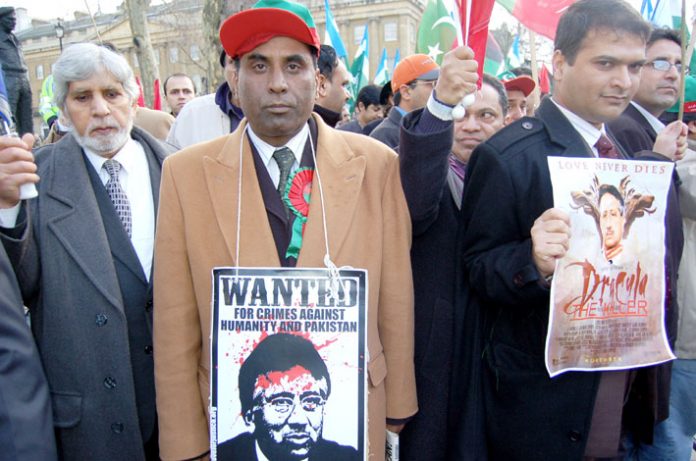Jubilant Pakistanis danced in the streets, waved flags and fired shots in the air, and called for President Pervez Musharraf to be put on trial, after he announced his resignation yesterday.
The former army chief, who seized power in a military coup in 1999, had been under huge pressure to quit before the current coalition government launched the first impeachment proceedings in Pakistan’s 61-year history.
Impoverished Pakistanis are hoping his departure will bring improvement to their lives.
Lawyers, who have spearheaded an anti-Musharraf campaign since he tried to sack the chief justice last year, shouted ‘Down with the American stooge!’ as they stormed out of courts in Multan.
In Peshawar, Jaffar Shah, a retired soldier, said: ‘The root cause of all problems has gone.
‘I wish I could fire shots to show my joy but unfortunately I can’t do that.’
In Karachi, people handed out sweets and danced in celebration. ‘Thank God he’s resigned. The country will do much better now. It’s a victory for the people,’ said one small businessman.
In Lahore, the sound of drums and cheers of joy echoed throughout this ancient walled city.
The son of slain former Pakistani premier Benazir Bhutto hailed Musharraf’s resignation, saying the next president would be from Bhutto’s party.
Nineteen-year-old Bilawal Bhutto Zardari said: ‘After the martyrdom of my mother I said that democracy was the best revenge – and today it was proved true.’
Zardari, the Chairman of Pakistan People’s Party (PPP), added: ‘Someone from the Pakistan People’s Party would be the next president of Pakistan but I don’t know who that would be.’
Sadiqul Farooq, a spokesman for the party of ex-Prime Minister Nawaz Sharif, PML(N), whom Musharraf ousted in the 1999 coup – insisted immunity was out of the question.
Sharif’s party is the second-largest in the coalition, and it has said Musharraf should be tried for treason, which carries a maximum punishment of death.
The Chief Justice of Pakistan, Justice Abdul Hameed Dogar, met Musharraf in President House after the announcement of his resignation as President and remained with him for some time.
Meanwhile, several close aides said Musharraf was not set to go into exile as several of Pakistan’s former leaders have done.
‘He is not going anywhere,’ one aide said.
The leaders of the ruling coalition, Nawaz Sharif and Asif Ali Zardari, later met in Islamabad.
Television footage showed them smiling broadly and shaking hands but they made no immediate comment.
In a televised address to the nation, grim-faced Musharraf, wearing a sober suit and tie, said: ‘After viewing the situation and consulting legal advisers and political allies, with their advice I have decided to resign.
‘I leave my future in the hands of the people.’
There had been days of reports of negotiations that would allow him to stand down without facing legal action, and it was not immediately clear what would happen to him next.
Referring to calls for him to be put on trial, Musharraf said: ‘Unfortunately, some elements acting for vested interests levelled false allegations against me and deceived people.’
The coalition of parties which won the February election, led by Bhutto’s PPP, finally overcame months of divisions and agreed to impeach Musharraf on August 7.
It piled on the pressure with no-confidence votes in Pakistan’s four provincial assemblies last week.
Then on Sunday it said it had drawn up impeachment charges and would lodge them in parliament this week.
The charges reportedly included violation of the constitution and gross misconduct.
Officials say that Musharraf’s aides have been in talks with the coalition, brokered by Saudi Arabia, the United States and Britain, to allow him to quit in return for indemnity.
